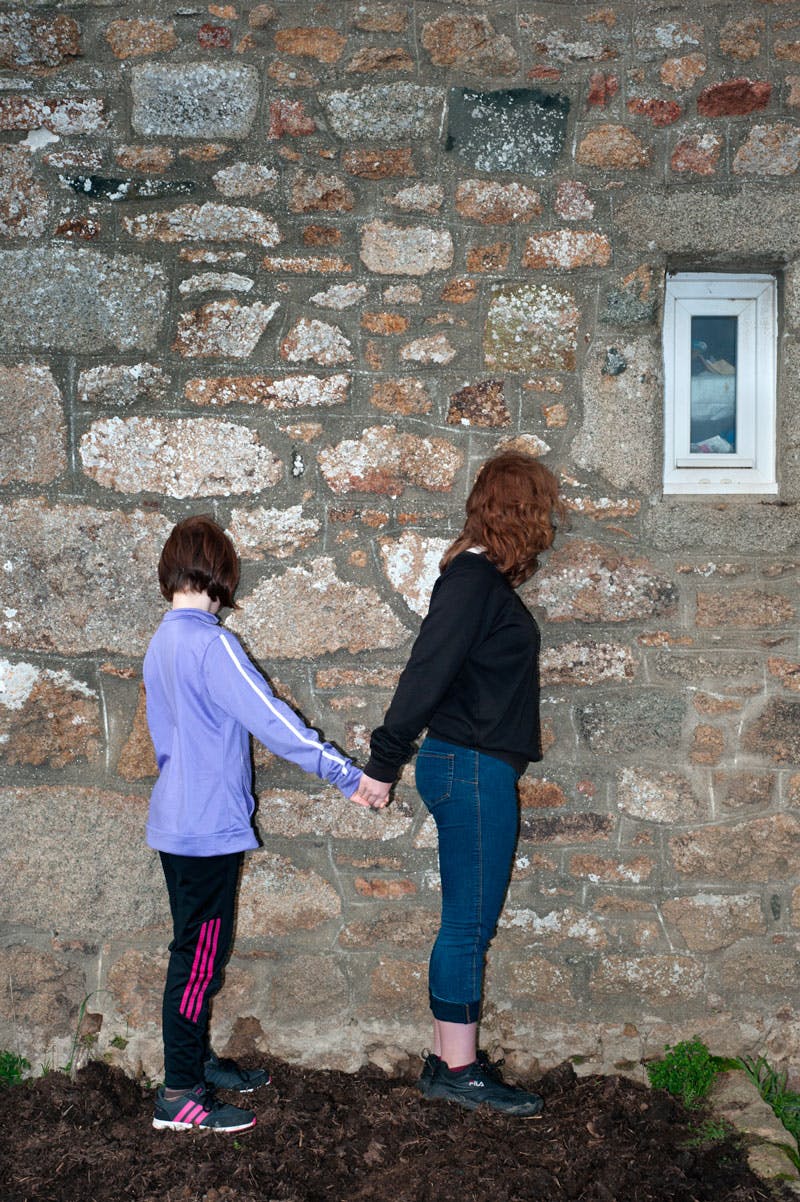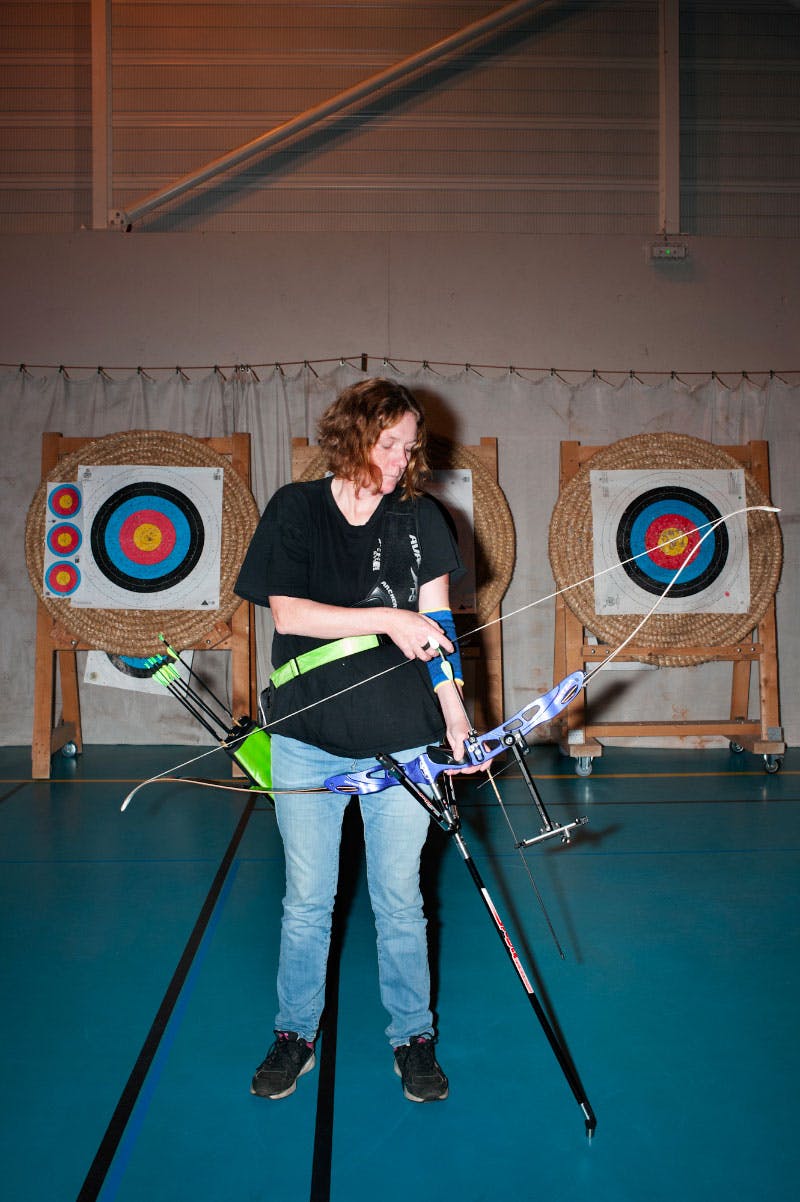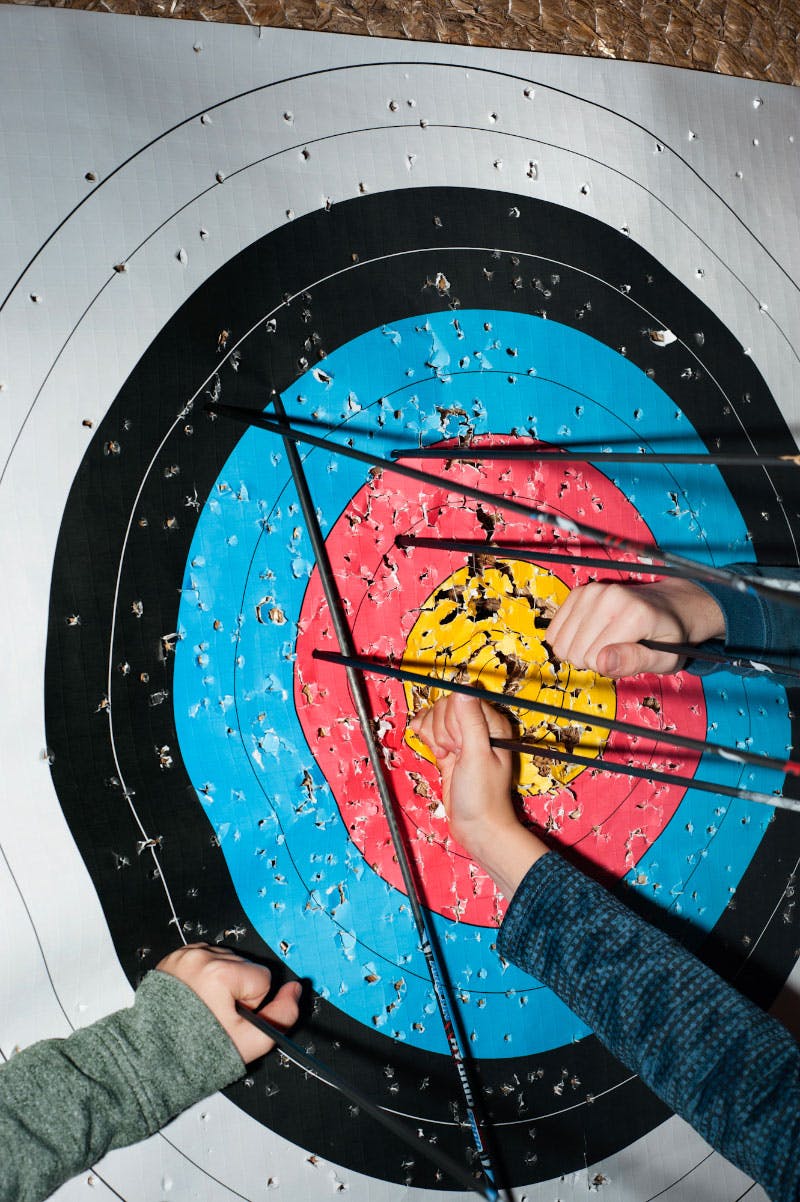wednesday, December 11, 2019
In their bedroom Amandine and Emilie* proudly showed us the gold medals fixed to the wall. The two sisters, aged 10 and 11, became enthused when they described their passion for archery. But when the name of the man who taught them archery was brought up, their voices started to falter. “In the beginning, Roland was nice,” said Amandine, the younger sister. “Afterwards he started asking for kisses, cuddles. He insisted that we sleep at his place after competitions. He was very insistent.” The older girl signalled she agreed with her sister.
Roland F. had become a friend of the girls’ family and was invited for Christmas to their home at Pleubian in the Côtes-d’Armor département (equivalent to a county) of Brittany in north-west France. Giving every appearance of a gentle, kindly and grandfather-like figure, the archery coach received permission from the girls' parents that they could sleep one evening at his home in the neighbouring village of Lanmodez. That night the 72-year-old coach took advantage of being alone with the girls to play a board game, during which he sat one of the sisters on his knees and slipped his hand inside her trousers.
![]()
AMANDINE AND EMILIE, HERE IN THEIR BEDROOM, ARE PROUD TO SHOW THE MEDALS THEY WON IN ARCHERY COMPETITIONS.
![]()
THE TWO SISTERS, AGED 10 AND 11, IN THE GARDEN OF THEIR HOME IN PLEUBIAN, BRITTANY (NORTH-WEST FRANCE). ©MARTINA CIRESE
“He had taken them under his wing and had quickly sent them to competitions,” recalled Solène Guyomard, the girls' mother. “They started to return home with earrings, sweets, presents.” For months Roland F. succeeded in getting the parents to drop their guard. That was until the day that the sisters told their parents that the archery coach had touched their bottoms, sliding his hands under their clothes. Solène Guyomard immediately made an official complaint.
On April 2nd 2019 Roland F. was arrested by gendarmes, accused of sexual assault on minors. During questioning he was evasive. His hand might “inadvertently” have slipped into one of the children's trousers. During the investigation the gendarmes found child porn images on his computer hard drive. But they discovered something else, too. For when they examined criminal records, officers found out that the coach had already been convicted in 2000 and given a four-year jail term, two of which were suspended, for sexual assault on minors in his own family. Roland F. was a repeat child sex offender.
His story illustrates perfectly the administrative and judicial failings that allow repeat offending to occur. In 2007, when he had not long come out of prison, Roland F. joined Les Archers archery club at Paimpol in the Côtes-d’Armor without anyone checking on his criminal record. He quickly established himself as a respected and diligent club member. Over the years he rose up through the ranks and became a trainer and a senior figure within the association. Then he became president of the local committee for the département and also headed the disciplinary committee for the archery league in Brittany, the regional body for the national archery federation, the Fédération Française de Tir à l’Arc (FFTA).
But his closeness to young members had begun to worry some senior figures at the club. He seemed particularly “keen” on a girl of 11, even buying her jewellery. In 2016 the club's mangers spoke to him about his “inappropriate behaviour”. He denied it, even taking offence when he was asked not to be alone with the children. Roland F. was then forced out of the club.
![]()
SOLÈNE TOOK UP ARCHERY AFTER HER GIRLS WERE ASSAULTED: “SO THAT THEY’RE NEVER AGAIN LEFT ON THEIR OWN,” SHE EXPLAINED.
![]()
THE GYMNASIUM IN PLEUBIAN (BRITTANY) WHERE ROLAND F. TAUGHT ARCHERY TO AMANDINE AND EMILIE. © MARTINA CIRESE.
The Paimpol club immediately alerted the Brittany archery league. The club president, Jérémy Dupont, still remembers it. In the shed where the club keeps its targets and arrows, he read out the league's response written on November 1st 2016 by Pierrick Leparc, the regional technical advisor: “I met Roland F. yesterday, when we talked about the issue … it seems that this might be more of an internal or personnel issue than a league issue.” Dupont still cannot get over it. “Basically, the league told us that it couldn't do anything,” he said
The author of the letter, Pierrick Leparc, himself acknowledged: “On one side you had the children's word, and nothing else. It's an internal matter and above all a personal matter. It's up to the parents to do what they have to do with the regulatory authorities. Unfortunately that's all that can be done.”
The national federation said that it has only now discovered the nature of this case and the fact that that no further action was taken. “The assistance offered didn't match the club's needs,” admitted Benoît Binon, the national technical director at the FFTA. In such cases the federal organisation had to “go the extra mile, as a precaution”, he added. For example it could have alerted the “youth and sports services” or “filed a report” with police. Another precaution that the regional body could have taken – but did not – was to have suspended the man's licence.
This meant that Roland F. was still able to move freely in the region as a coach. He was even authorised to teach archery in schools thanks to a professional certificate he had obtained despite his criminal record. “There's an enormous flaw when it comes to diplomas, because criminal records checks are not obligatory,” said the Paimpol club's president Jérémy Dupont. In 2018 Roland F. even created his own archery association at Pleubian, as a volunteer. That was where he met Amandine and Emilie. “We found out that's why the criminal records of the volunteers hadn't been checked,” said an angry Solène Guyomard. “All this really could have been prevented.”
On August 19th 2019, and following the complaint from the Guyomard family, Roland F. was given an eight-year jail sentence for sexual assaults on minors. This time the courts banned him definitively from ever working with children again. This was nearly 20 years after his first conviction.
- 47% of perpetrators were repeat offenders
Our investigation has revealed an alarming figure: out of 77 recorded cases, close to one in two of the aggressors had already been convicted of an offence or crime of a sexual nature. In the very great majority of cases the repeat offenders are sports coaches. But some are also officials in sports clubs, maintenance staff or simply volunteers.
For employed coaches and independent service providers the lack of supervision of a qualification or professional licence can help facilitate repeat offending. In this particular case, supplying documents which are not up to date – they are renewed every five years – in fact gets around the automatic and annual criminal record checks carried out by the local prefecture.
The issue with volunteers lies in the absence of mandatory checks of the sexual and violent criminal records system – the Fichier Judiciaire Automatisé des Auteurs d'Infractions Sexuelles et Violentes (FIJAISV) – by sports associations. In fact, a sexual criminal has more chance of being able to head a sports association or train youngsters in complete freedom if he is not paid, as was the case with Roland F.
“That's the principal failing. We have predators who slip through the net,” said Sébastien Boueilh, founder of the victims’ association Colosse aux Pieds d'Argile ('Giant with Feet of Clay'), which has for years campaigned for better checks to be carried out on the possible criminal records of volunteers working in sport. “In the Centre-Val de Loire region [editor's note, a central region south-west of Paris] the football federation is starting to check the criminal records of thousands of volunteers, but it's experimental,” said Sébastien Boueilh, a former professional rugby player who was himself a victim of rape in his childhood.
There is a great deal at stake: amateur sport is run by a multitude of associations and owes its existence and continuing survival to the involvement of some 3.5 million or so volunteers. These range from the people running small sporting associations, supervisors of children and match-day drivers, to those who simply accompany youngsters.
François Breteau is very aware of the issue of repeat offenders. In 2012 Breteau, the president of a roller-skating club at Loroux-Bottereau in central western France, met Sébastien B. The latter was in his twenties, had a diploma and was offering to set up a freestyle skating section, which François Breteau agreed to. But three years later the first complaints came in: the coach was accused of carrying out sexual assaults on around 15 boys aged 10 to 14. These tragic events could have been avoided, however, because five years earlier the coach had been convicted at Saint-Nazaire in western France of sexual assault on minors at another club in the area. He had been banned from working with minors and was under judicial supervision.
On April 29th 2015 François Breteau wrote to the then-prime minister Manuel Valls. In his letter, a copy of which Disclose has obtained, the president of the Loroux-Bottereau roller-skating club raised the alarm about the ineffectiveness of the way convicted people were monitored. And especially when those people were volunteers. “The initial gut reaction of parents directly affected by this tragedy is to ask themselves how the club could have let this type of individual join,” he wrote. “The reality unfortunately shows that as a president of the club, the means of protecting oneself against such acts in our associations are very limited and their effectiveness is very uncertain.” There was no reply from the prime minister's office. Meanwhile Sébastien B. committed suicide just before his trial in 2015.
We met Karim* in the spring of 2019. The meeting took place on the terrace of a bistro near the city of Lyon in south-east France, not far from the fencing rooms where he first started in the sport. Agitated, he agreed to tells us the details of his story, about which he has never spoken publicly, but asked to remain anonymous. That is why we have taken the decision not to mention the name of the club or the names of the many witnesses we have met.
His story is an illustration of the veil of silence which poisons the sporting world, and the sense of denial which exists concerning the risk of repeat offenders. The problem is even worse when the coach concerned wins competitions and brings in hauls of medals for a club or association.
The story started almost 30 years ago, in the 1990s. At the time Karim, who was an up and coming fencer, was subjected to sexual assault by his combat instructor. He was just 14 at the time.
In 2000, by which time Karim had left the Lyon area, his former coach was convicted for the inappropriate touching of a young boy he had met while working as a holiday camp activity leader. The coach was given a six-month suspended sentence and obliged to get medical treatment, but he was not banned from working with minors. Managers at the fencing club decided to leave him in his post. “After the trial we were asked not to disclose it to the parents of other children. The club and our staff had to be protected,” admitted Pierre, a former combat instructor at the club who was there at the time of the trial.
“And he continued,” Karim told us. Indeed, the club management's lack of judgement led to more victims. One was Sébastien who was sexually assaulted some years after the conviction. Another was Jérôme, who was abused between 2003 and 2004 when he had just become an adult. “It was touching and it probably happened three or four times,” said this former French youth and junior category fencing champion. He said that the reason no-one did anything inside the club was that the combat instructor “was the main coach, a recognised figure who produced good results”.
In the summer of 2004 Jérôme and Karim decided to break their silence. Along with other sporting victims of the same combat instructor they made a formal complaint to the police's juvenile protection unit. A preliminary investigation was opened but the coach himself was not interviewed.
Now more than 15 years later, Karim, sitting with an empty coffee cup in front of him, sighed before describing what happened next. “I called the unit every day,” he recalled. “I told them that he was going to go abroad, or commit suicide. And sure enough,” he added bitterly. For in September 2004 the coach killed himself in his parents' garage.
The affair led to the immediate resignation of the fencing club's president. When contacted by Disclose, the former club president said he regretted his lack of action. “He was an intelligent lad and everything suggested to us that the club was a sanctuary. But it absolutely was not.” As if to make up for the fact he had not taken the necessary measures, he added: “I was not the only one on the management committee who knew that [the fencing coach] had been convicted. Some parents and some youngsters also knew.” He paused and noted: “Yes … there was a kind of collective error.”
*The first names have been changed








